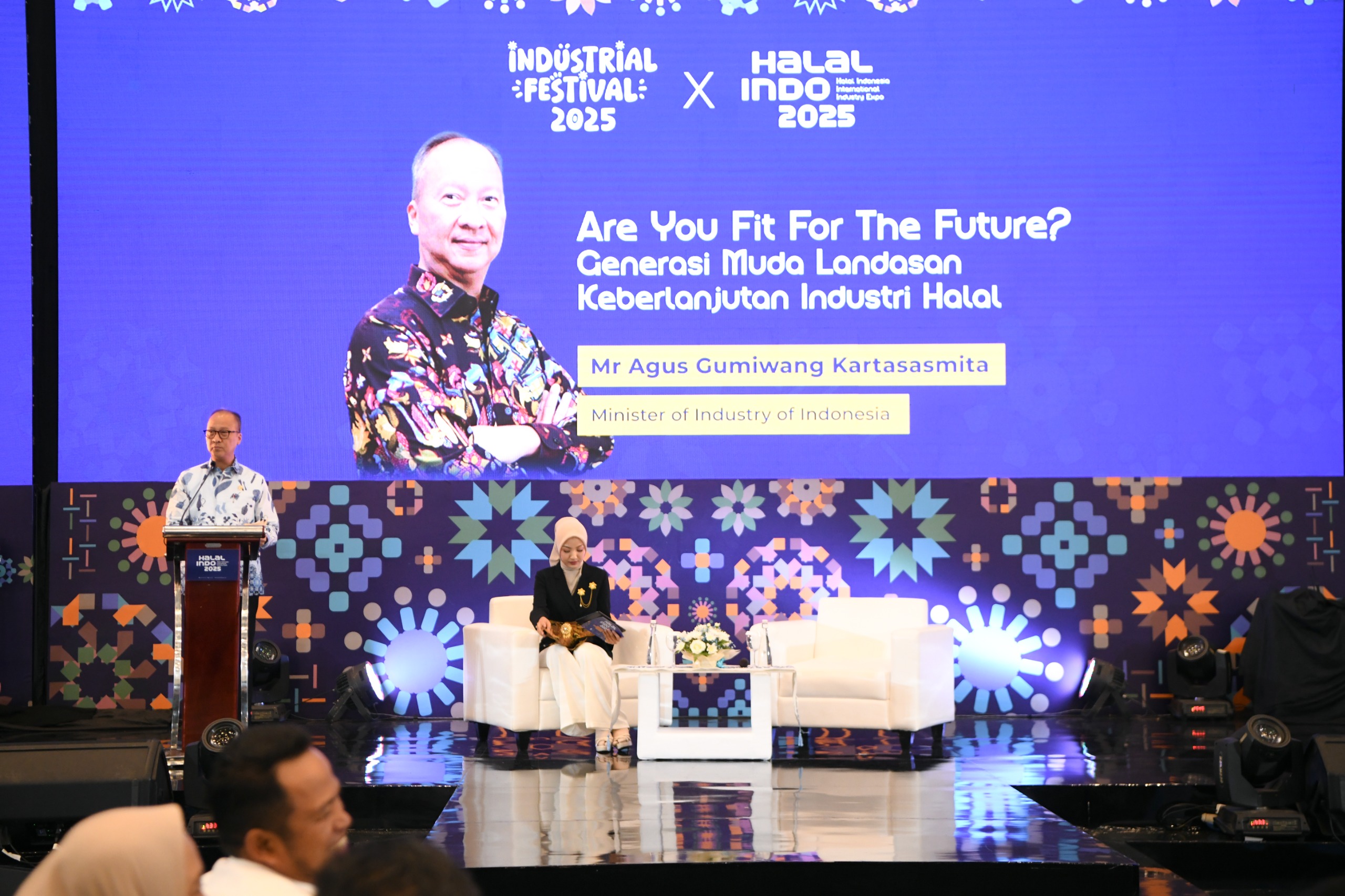Indonesia's halal industry is experiencing rapid growth, positioning itself as a critical pillar of the nation’s economy. Demand for halal products is rising domestically and internationally, reflecting a robust market trend. This growth is underpinned by a diverse ecosystem that spans food, fashion, cosmetics, and other sectors aligned with halal standards.
Youth as the Driving Force in Indonesia’s Halal Industry Development
More than half of Indonesia’s population, 53.8%, consists of millennials and Generation Z—vibrant, innovative generations in their productive years. This demographic is seen as the key driver behind the sustainability and expansion of the halal industry. Minister of Industry Agus Gumiwang Kartasasmita emphasized at the Industrial Festival and Halal Indo 2025 event, “With this population composition, young people must maximize their contributions to economic development, especially in the halal sector.”
He further urged the youth to engage actively with sustainability issues and make value-driven choices in product consumption. The ministry envisions these generations as innovators, job creators, and promoters of a modern, inclusive halal lifestyle.
Global and Domestic Market Potential of Indonesia’s Halal Sector
The global halal economy is booming, with Muslim consumer spending across six Shariah-compliant economic sectors reaching USD 2.43 trillion in 2023. Projections indicate growth to USD 3.36 trillion by 2028. Indonesia’s domestic market is vast, supported by 246 million Muslims whose household consumption hit IDR 3,226.1 trillion in the first half of 2025.
According to the State of the Global Islamic Economy Report 2024/2025, Indonesia ranks third globally in the halal industry ecosystem, following Malaysia and Saudi Arabia. Notably, Indonesia recorded the highest score increase among these countries, improving by 19.8 points since 2022.
Domestically, the halal industry showed strong momentum. By Q2 2025, Indonesia housed 140,944 halal enterprises, predominantly in the food sector, with 130,111 businesses. Certified halal products totaled 584,552, backed by 162,111 halal certificates. Investment-wise, Indonesia leads globally with USD 1.6 billion invested in halal industries during 2023–2024 out of a total USD 5.8 billion.
However, export figures reveal room for growth. Indonesia’s halal product exports reached USD 12.33 billion in 2023, whereas imports from OIC countries amounted to USD 29.64 billion. Minister Agus pointed out this gap as motivation to boost domestic production capacity, stating, “We must not only be a market but also become a global center for halal production and innovation.”
Government Initiatives to Strengthen Indonesia’s Halal Ecosystem
The Ministry of Industry consistently supports the halal industry through various strategic programs. These include formulating technical halal product policies, developing industrial infrastructure, enhancing human resources, facilitating halal certification, promoting industry collaborations, and ensuring regulatory oversight.
Annual events like the Indonesia Halal Industry Awards (IHYA) aim to reinforce the national halal ecosystem and foster global diplomacy and partnerships. The Halal Indonesia International Industry Expo (Halal Indo), launched in 2024 with international participation from over 10 countries in 2025, strengthens market access and global awareness.
Integration with major international halal expos—from Bangkok to Istanbul—further solidifies Indonesia’s role in the global halal network. Minister Agus expressed confidence that these efforts, combined with active youth involvement, position Indonesia to lead a competitive, inclusive, and sustainable halal economy.
Digital Innovation and Future Opportunities in the Halal Industry
Young Indonesians, as digital natives, are poised to transform the halal industry through technology and innovation. They can act as intelligent consumers promoting halal lifestyles in fashion, cosmetics, and healthy food sectors. Additionally, they serve as creators of digital content, halal apps, and startups, amplifying halal awareness.
Minister Agus encouraged youth to be social change agents using digital platforms to advocate for inclusive, ethical, and eco-friendly halal products. He stressed the importance of mastering digital literacy and skills to become not just followers but trendsetters of a modern, sustainable halal lifestyle.
“Prepare yourselves for future challenges, master digital literacy, and aspire to become entrepreneurs and industrialists who contribute to building a beloved Indonesia—fit for the future!” he concluded.
PHOTO: KEMENPERIN
This article was created with AI assistance.
Read More






 Friday, 27-02-26
Friday, 27-02-26







